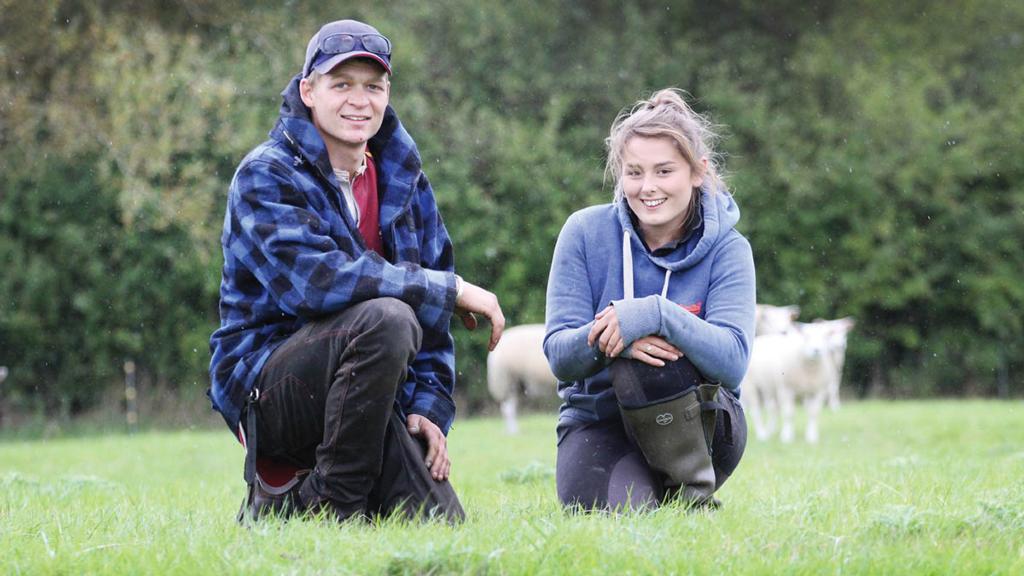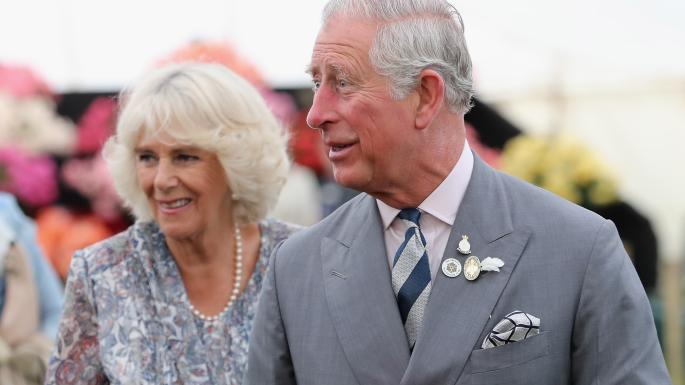The Working Week
| Site: | Plateforme pédagogique de l'Université Sétif2 |
| Cours: | Oral Expression |
| Livre: | The Working Week |
| Imprimé par: | Visiteur anonyme |
| Date: | jeudi 25 décembre 2025, 12:17 |
Description

1. My Favourite Day of the Week
![]() Starter
Starter
Listen to the song called Blue Monday by Fats Domino.
- What’s the singer’s favourite day of the week ?
- What’s wrong with the other days ?
- What days are ok ?
- My Favourite day of the week
Present tenses-States and activities
Look at the photos.
What do the people do ? What are they doing ?
In pairs, ask and answer questions.
What does Vicky do ? She’s a school girl.
What’s shed oing ? She’s doing her homework.




Listen to them talking about their favourite day of the week. What is it ? Why ?
Vicky’s favourite day of the week is……..because she’s……….
- Listen again and complete the sentences, remarking how she uses expressions right.
- 1. I……………..with my parents during term-time.
- 2. I……………..day today.
- 3. It ………….work at all. Time………. By.
- 4. The restaurant………….redecorated at the moment.
- 5. I…………….it’s challenging, but I ………..surfing.
- 6. The boards …………..in South Africa.
- 7. We rarely………..at the weekend or Christmas Day.
- 8. Now we’re lambing, so we,……….either.
What else can you remember about each person ?
Work with a partner. What’s your favourite and less
favourite day of the week ? Why ?Vicky like being with her friends all the time…..
1.2 Grammar Spot
- What are the tenses in the sentense ? Why are they used ?
I have two lessons on Monday.
I’m having a bad day today.
- Which of these verb forms is right ?Why is the other wrong ?
I like/ I’m liking my job.
I know/I’m knowing.
- Adverbs of frequency (always, never) answer the question how often ?
Some verbs are arely used in continuous tenses. These are State verbs. Underline the state verbs in the box.
|
Love understand work want enjoy cost need learn |
1.1. Simple and continuous
Simple and Continuous
- Ø Listen to two people talking about who’s who in the office. What are their names ? What are their jobs ?
|
Simon Edward Anna Jenny Matthew Christina |
Accountant Human Resourses (HR) Manager Managing Director (MD) Personal Assistant Information Technology (IT) Manager Sales Director |
- Talk about the people. What are the people doing ? What are they wearing ? Take account of the correct use of the tense, its structure, and correct intonation (falling).
e.g. Simon’s sitting at the top of the table reading something. He’s wearing a jumper.
- Listen again. What comment is made about each person ?
e.g. Simon shouts alot, but he listens as well.
- Match a job from exercise 1 with a job description and a current project.
|
Job desription |
Current project |
|
is responsible for running the whole company makes appointments and arrangements negotiates prices and contracts runs an IT support team is in charge of budget and cash flow looks after employees
|
buying new hardware making bookings for a conference visiting new customers in China recruiting new stuff discusses plans and targets with the board preparing a financial report |
- Work with a partner. Read the conversation aloud. Pay attention to the pronunciation of certain words like : resources manager, employees, and recruiting. Also, be careful with intonation (rising/falling in Wh-questions, falling in declarative sentences) and stress patterns.
A : What’s your job ?
B : I’m a Human Resources Manager.
A : So what do you do exatly ?
B : I look after the employees and their traing.
A : And what are you working on at the moment ?
B : I’m recruiting and interviewing. We are trying to find new staff for our office in Paris.
- Make similar conversations using the jobs in exercise one. You can personalize the activity by choosing including new jobs.
State and activity verbs
- Are the sentences right or wrong ?
Correct the wrong ones.
I’m not wanting an ice cream.
Are you understanding what i’m saying ?
I’m enjoying the course. It’s great.
I’m thinking you’re really nice.
I’m not believing you. You’re telling lies.
I’m knowing you’re not agreeing with me.
She’s having alot of money.
2. Reading and Speaking
 Charles, Prince of Wales
Charles, Prince of Wales
- Ø What do you know about Prince Charles ?
Actual position, private life, public life …
- Read the article. Answer the questions after each part.
Part 1
- What gives you the impression that Charles is extrmely wealthy ?
- What happens to his stuff if they do well ? What bhappens if they don’t ?
Part 2
- What is the routine when he entertains at Highgrove ?
- What is the private side of Prince Charles ?
Part 3
- What are some of his public duties ?
- What good deeds does he do ?
Part 4
- « Prince Charles has everthing ». What does he have ? What doesn’t have ?
- What is Duchy Originals ? What is happening to it ? What does it sell ?
- What title Camilla will have when Charles is King ?
- In what different ways is Charles referred to ?
Vocabulary work
- Ø Which of theses adjectives are positive and which are negative ?
|
Hard-working bad-tempered soilt eccentric old-fashioned sociable cautious passionate frustrated successful well-intentioned |
- Give an example of Charles’ life or behaviour that illustrates that illustrates each adjective.
Discussion
- What do you know about the attitude of British people to their royal family ?
- What countries do you know that have a royal family ? Are the members of the family popular ? What do they do ?
The Life of a Hard Working- Man
Hiseccentric habits are known to the world, but the Prince of Wales has everyreason to feel content. A man withwideinterests and deep passions, heisfinallyhappilymarried. Daniella Kent reports.
|
P |
rince Charles isoftenportrayed as bad-tempered and spoiled. There are srotiesthateverydayseveneggs are boiled for his breakfast sothathecanfind one thatiscookedjust the wayhelikesit. Histoothpasteissqueezed onto hishistoothbrush for him. And his bath towelisfolded over in a particularway for whenhegets out of his royal bath.
He has an enourmousprivatestaff─secretaries, pressofficers, four valets, twobutlers, housekeepers, two chefs, two chauffeurs, tengardeners, an army of porters, handymen, cleaners and maids. They are expected to geteverything right. When H R H (His Royal Highness) feelsthey have performedtheirdutieswell, theypraised in a royal memo. But if they have made mistakes, they are calledintohisstudy and told off. The prince cangetsoangrythathe has been known to have tantrums, throwingthings and screamingwith rage.
The private and public man
Charles iseccentric and headmitsit. He talks to trees and plants. He wants to savewildlife, but he loves hunting, shooting and, fishing. He dresses for dinner, even if he’seatingalone. He’s a great socialiser. Poets, artists, writers, broadcasters, politicians, actors, and singers all eat at his table. RRiving at Highgrove, hisfamily home, on a Saturday afternoon in time for a stiff Martini, guests are entertained in the hight of luxury. They are then sent on theirwaybeforeluch on Sunday, having been shownaroundhisbeatifullykeptgardens. The future monarchthatwedon’tseeis a man of great humour, who cares passionately the state of the British nation, and he’sdevoted to histwochildren, William and Harry. He’smadly in love withhis ‘darlingwife’, whichis how herefers to Camilla in public.
A dutiful life
Together Charles and Camilla performroyalduties, both at home and abroad. He attends over 500public engagements ayear. He visitshospitals, youth groups, performingartists, charities, and business conferences. He travelabroadextensively, as an ambassador to the UK, reprsentingtrade and industry. He works hard to promotegreaterunderstandingbetween religions. He’salsopresident of the Prince’sCharities, which are active in promotingeducation, business, the environment, the arts, and opportunities for young people.
Everythingexcept the top job
Since his second marriage, Charles has everything he wants except, as Diana (who was killed in a car accident in 1997) used to call it ‘the top job’. Yet despite not being on the throne he has worked hard to accomplish so much. He is concerned by the state of the country he loves and shows his frustration that governments do little to tackle those problems about which he feels so strongly. The Prince of Wales has his own food company, Dutchy Originals. It originally, but is now expanding to become one of Britains best-known and most successful organic brands, with over 200 different products , including food, drink, and hair and body care products. Charles, well-intentioned, hard-working, conservative and old-fashioned continues to do his duty as he sees it. But he’s no longer alone. One day he will be King and his darling Camilla will be HRH the Princess Consort.
3. Listening and Speaking
Listening and speaking
Who earns how much
- Work with a partner. Look at the chart. Discuss which job you think goes with which salary.
Doctor footballer senior director nurse teacher
Super market cashier police officer pilot lawyer farmer
£22, 500 £120,000 £1Mllion £12,500 £65,000 £750,000 £105,000 £11,000 £32,000 £36,000
- You are going to hear two people discussing the chart. Listen to part 1. Answer the questions.
- Which job do they discuss ?
Which salaries do they agree on ?
- Complete the sentences.
ü They think a doctor earns either £…………….or £………….
ü They think either a …………….or …………… a earns £750,000
ü They think a ……………earns about £65,000.
- What comment do they make about ………….. ?
- Doctor footballer senior directors pilots
- Listen to part 2. Answer the questions, paying attention to intonation and stress patterns.
1) Who do they think are the lowest earners ?
2) How much do they think farmers earn ?
3) Do they agree about the teacher’s and a police officer’s salary ?
4) What is the woman’s final point ?
|
Spoken English Giving opinions |
|
v Notice the ways of expressing opinion. I reckon…….. I’d say………. I suppose…………. v Are these ways of agreeing or disagreeing ? I think so too. Definitely. I know what you mean, but…….. I’m not so sure. Actually….. Absolutely. v What do we mean when we say …….? Could be. May be, may be not. Possibly. v Discuss the salary chart again using some of these expressions. |